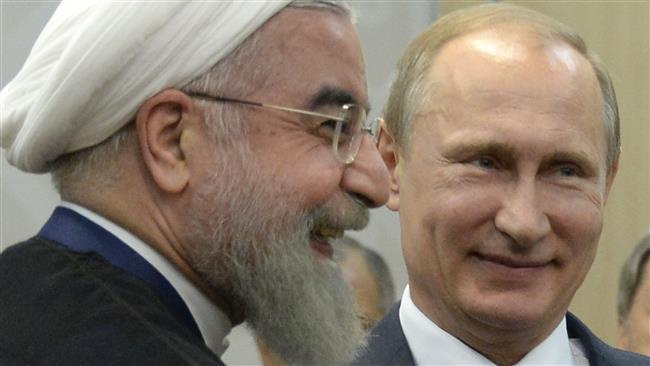Iran Russia Relations in Historical Upsurge
In an op-ed for Iranian Diplomacy, senior international relations expert Ahmad Hosseini explains the economic and political significance of the trilateral summit held in Tehran, attended by the Azerbaijani and Russian presidents.

Russian President Vladimir Putin and the Azerbaijani President Ilham Aliyev visited Tehran on Wednesday to attend the trilateral summit on the International North–South Transport Corridor (INSTC). Under the critical conditions of the region where efforts are underway to render diplomacy and cooperation futile, the summit becomes doubly significant, two aspects of which, i.e. economic and political aspects, are briefly analyzed:
Economic:
- The progression of the North–South corridor: The pivotal role of Iran, Azerbaijan, and Russia in the completion of the project is very important, with the potential of launching a tremendous transformation of regional and extra-regional transit and attracting neighboring and extra-regional countries. A very important step would be to diversify the three countries’ access routes, to increase the options at hand to expand cooperation. The operationalization of the project is for Iran a step toward restoring strategic potentials, after two and a half decades during which the West bypassed Iran through connecting corridors, energy transfer, and other means.
- As far as Iran-Russia mutual ties are concerned, important projects in various sectors such as energy, gas transfer pipelines, nuclear plants, customs and trades issues, banking facilities, etc. are on the agenda. Even if these projects become partly operationalized, this would mean a great improvement in Tehran-Moscow ties, potentially bridging the perpetual gap of an economic backdrop for close political ties.
Political:
- The fact that the three countries are on the path of cooperation could be an example for regional cooperation, where countries could resolve their own issues without the influence of extra-regional forces. This will have a huge impact on other countries in the region and empower convergence.
- After the collapse of the Soviet Union, Iran and Russia have chosen logical stability and continuity in their ties. This includes the crises in Chechnya and Tajikistan and has been continued so far. The prospect for the cooperation is bright, with the two countries adopting an increasingly positive attitude toward the complementary potential in between, even though the West’s propaganda apparatus tries to obstruct convergence by stressing stereotypical and historical mentalities in both sides.
- While the US-Western coalition with countries in the region is quite tactical, manipulative, and frequently failing, Iran and Russia are on a path adapted to regional trends, becoming more appealing day by day. Today, Turkey has joined in, and other countries will follow suit little by little.
- Playing with different cards in the Tehran-Moscow ties should not turn into an obstacle for the expansion of mutual ties. Both states benefit from the ties and their convergence could lead to the weakening and ultimate defeating of aggressive western scenarios in the region, a great achievement in itself. In the meantime, the US is the most important country whose status in regional developments is declining every day. This could be very important in stabilizing Iran’s regional role.

